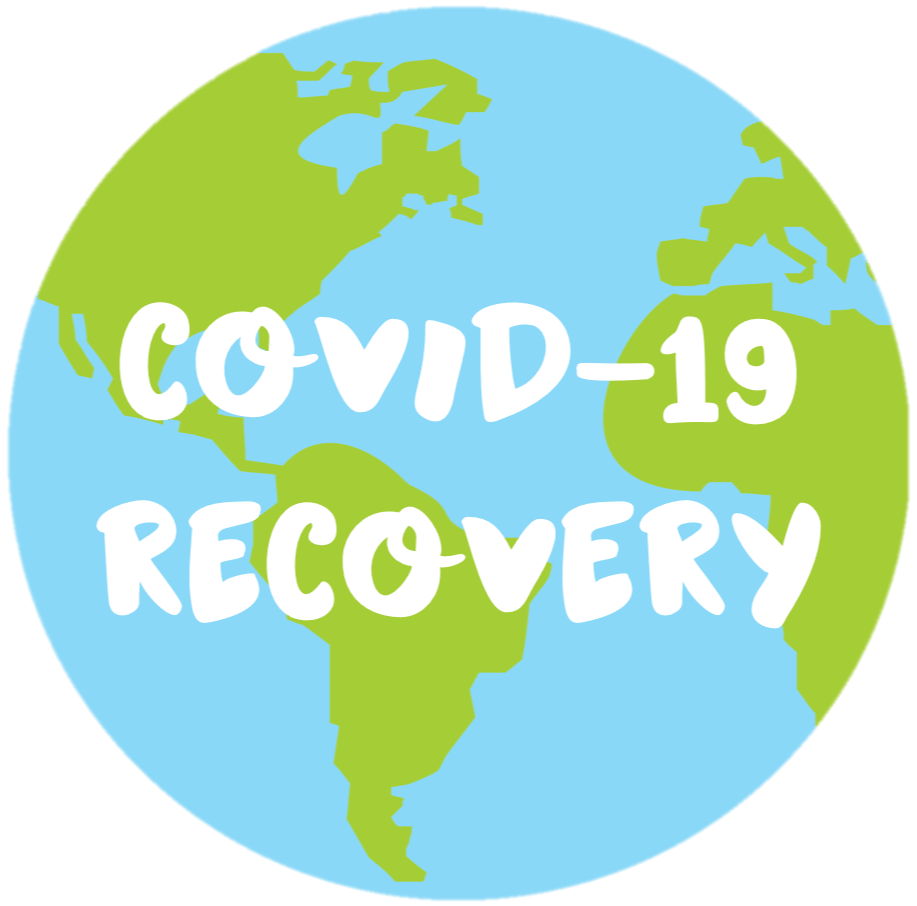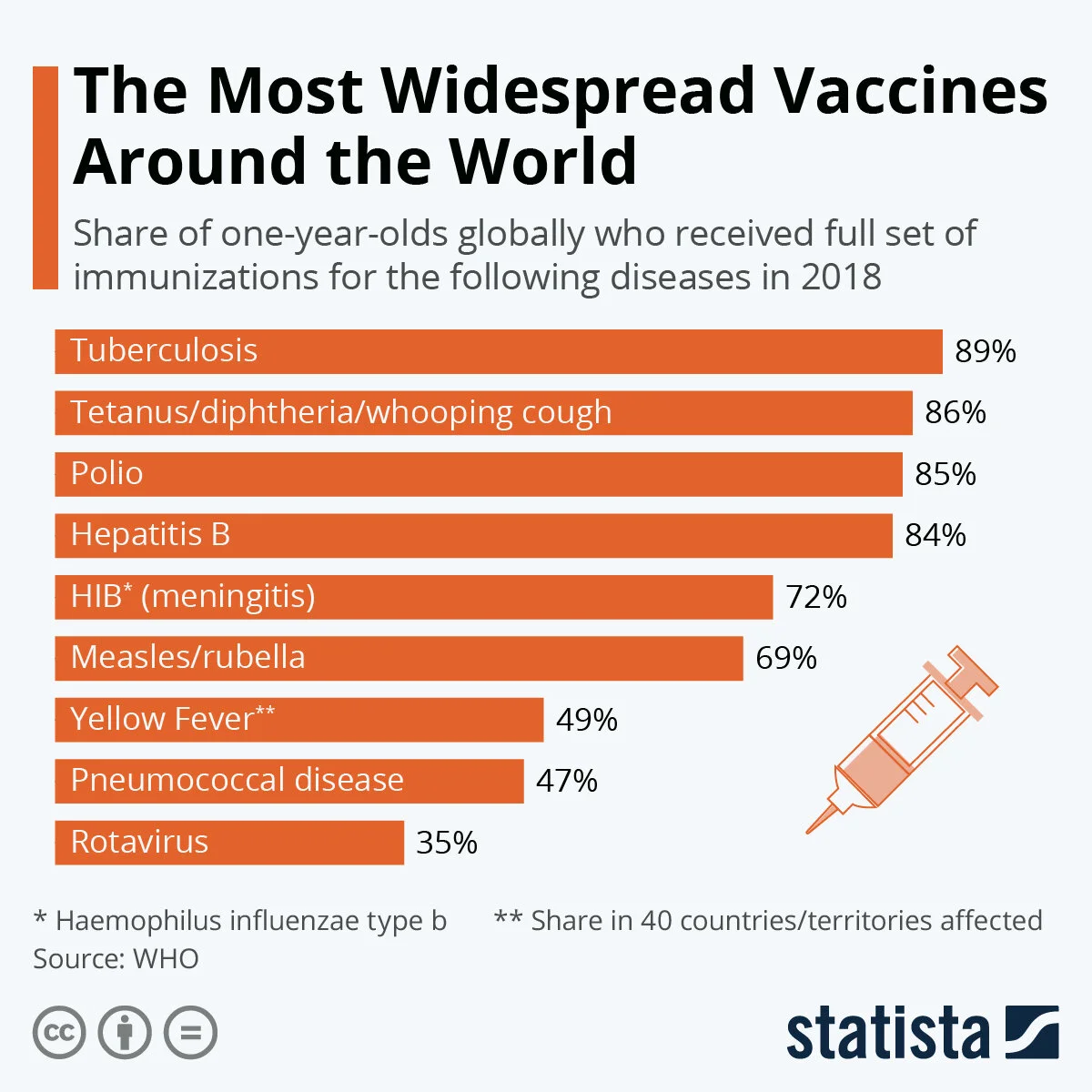Vaccines: Frequently Asked Questions
Cities and countries around the globe are beginning to open up, but many experts believe that we will not return to normal until a vaccine has been developed and distributed. There are many questions surrounding the development and use of vaccines, who should get them, and if they can truly provide long-lasting immunity against diseases. In this post, we will try and address some of the most common questions surrounding vaccines and hopefully debunk some myths you may be buying into.
For more information on what vaccines are and how they work, check out last week’s post.
Q: Is it safe for me to get vaccines?
A: You should always speak to a healthcare professional when thinking about getting a vaccine, but generally, yes it is safe to receive vaccines. Vaccines that are currently being distributed have gone through the rigorous processes of clinical trials, which can take anywhere from 1 to 10 years. Researchers and medical professionals must approve vaccine candidates at every step in the clinical trial process and prove that they are equal to, if not better than the current vaccine or treatment used to combat that disease. Safety and efficacy are always at the forefront of concern when developing vaccines.
Q: Does everyone need to be vaccinated?
A: In many countries, certain vaccinations are mandatory and are chosen based on the specific diseases which are most common in those countries. The most common mandatory vaccines are Tuberculosis, diphtheria, and tetanus (thought the list goes on), and these specific vaccines are chosen due to their known efficacy. The WHO states that these vaccines are ‘shown to be about 98% effective when used as recommended’.
Check out the graphic to the right for the most common vaccines around the world.
Besides these mandatory vaccinations, it is an individual’s choice to be vaccinated with optional vaccines or not, but we should always take into consideration those around us and the concept of ‘herd immunity’.
Herd immunity refers to a threshold of immunity within a community, in which the greater proportion of immunized individuals, the lower the chance of infecting susceptible, or unimmunized, individuals.
In this case, we can think of it as the immunized population protecting those who cannot be immunized, through their own immunity.
Refer the graphic to the left to see the effects of herd immunity.
This phenomenon is especially important for those who are immunocompromised and cannot receive vaccinations on their own. This also extends to those who are not fit to receive certain vaccinations, including those with specific allergies, medical conditions, and pregnant women. For more on who cannot or should not be immunized, refer to our next question!
Q: Who should not get vaccinated?
A: There are individuals in our communities who need to be especially careful when considering the process of vaccination. When considering a vaccine which contains live attenuated virus particles (for more information on types of vaccine, check out this post), individuals with weaker immune systems - such as children, elderly, and immunocompromised individuals - should always seek medical advice to determine if it is appropriate for them to receive such vaccines.
For a full list of recommendations of who should NOT receive specific vaccinations, click here.
Q: Are there side-effects of vaccines? What about post-vaccination symptoms?
A: All vaccine side-effects should be noted on vaccine packaging or by your healthcare provider when they are administering the vaccine. It is important to take the time to be aware of these side-effects before you receive any vaccine. Due to the rigorous nature of clinical trials, vaccines should not cause any severe side effects if used appropriately. However, there are a few common side-effects that can be attributed to the body’s natural immune response.
Check the graphic to the right for some common side effects of vaccines!
These signs and symptoms are usually safe and should not be a cause for concern. If any of these side-effects last more than 3-4 days, or if more serious side-effects develop, you should seek medical advice as soon as possible.
Q: Once vaccinated, do I have long-lasting immunity?
A: Like all other treatments and medications, vaccines are not always 100% effective, however the University of Oxford states that vaccines are more effective than any other medicines! Similarly, receiving a vaccine as a child does not guarantee you will have lifelong immunity to that specific disease. It is important to keep up-to-date with your vaccines and get appropriate booster shots when necessary to maintain a strong immune system.
Q: Why are some vaccines given in doses?
A: Vaccines given in doses, such as Pertussis, can be given for a few reasons:
Not all individuals will respond the same to a vaccine. According to the CDC, some individuals will not build up a strong enough immune response with only one exposure to the vaccine. Receiving multiple doses can build the immune system up.
Booster vaccines are also considered multi-dose vaccines and these are helpful for immunity that may fade over time.
Booster shots can also include new strains of viruses that have mutated over the years. By incorporating these new strains into the vaccines, we can generate immunity to multiple strains of the same virus!
Q: Does a vaccine work on everybody? Can I be immune to a vaccine?
A: A vaccine that has been approved for distribution has been tested positive on thousands of individuals during its clinical trials. The chance of an approved vaccine causing serious side effects or ‘not working’ is <1%. Additionally, an individual cannot be ‘immune to a vaccine’ as vaccines create an immune response. Alternatively, if an individual already has immunity to the vaccine’s pathogen, the vaccine may simply be unnecessary.
Q: When should I get vaccinated?
A: Each country has its own individual timelines for mandatory vaccinations. Please check your own government’s health organization resources for lists of vaccine recommendations and immunization timelines.
The CDC states that it is safe to receive a vaccine when an individual has a mild cold or illness, however, if an individual is experiencing a severe acute illness, vaccination should be delayed. This recommendation applies to both adults and children.
The timing of optional vaccines should be discussed with your healthcare professional.
The CDC has recommended vaccination timelines for all ages on their website. The above example is an immunization schedule for children ages 0-6.
Journal Sources:
https://www.ncbi.nlm.nih.gov/pmc/articles/PMC3202382/
https://academic.oup.com/cid/article/52/7/911/299077
Media Sources:
https://www.who.int/vaccine_safety/initiative/detection/immunization_misconceptions/en/index5.html
https://kidshealth.org/en/parents/fact-myth-immunizations.html
https://vk.ovg.ox.ac.uk/vk/faqs-about-vaccines
https://www.cdc.gov/vaccines/hcp/patient-ed/conversations/downloads/fs-child-sick.pdf
Image Sources:
https://academic.oup.com/cid/article/52/7/911/299077
https://evolutionliteracy.com/2015/03/25/antivaxxers-and-the-educated-public-herd-effect/
https://www.verywellfamily.com/flu-shot-side-effects-2634615
https://www.cdc.gov/vaccines/schedules/easy-to-read/child-easyread.html
https://www.healthlinkbc.ca/healthlinkbc-files/babys-immune-system-and-vaccines





